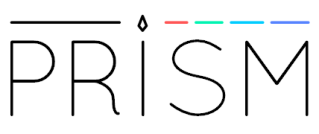[This post is re-published from an invited response to a February 2014 MediaCommons question of the week: “How can we better use data and/or research visualization in the humanities?” I forgot I had written it! so thought I would cross-post it, belatedly, to my blog. Many thanks to Kevin Smith, a student in Ryan Cordell’s Northeastern University digital humanities course, for reminding me. Read his “Direct visualization as/is a tactical term,” here.]
Neatline, a digital storytelling tool from the Scholars’ Lab at the University of Virginia Library, anticipates this week’s MediaCommons discussion question in three clear ways. But before I get to that, let me tell you what Neatline is.
It’s a geotemporal exhibit-builder that allows you to create beautiful, complex maps, image annotations, and narrative sequences from collections of documents and artifacts, and to connect your maps and narratives with timelines that are more-than-usually sensitive to ambiguity and nuance. Neatline (which is free and open source) lets you make hand-crafted, interactive stories as interpretive expressions of a single document or a whole archival or cultural heritage collection.
Now, let me tell you what Neatline isn’t.
It’s not a Google Map. If you simply want to drop pins on modern landscapes and provide a bit of annotation, Neatline is obvious overkill – but stick around.
How does Neatline respond to the MediaCommons question of the week?
1) First, as an add-on to Omeka, the most stable and well-supported open source content management system designed specifically for cultural heritage data, Neatline understands libraries, archives and museums as the data-stores of the humanities. Scholars are able either to build new digital collections for Neatline annotation and storytelling in Omeka themselves, or to capitalize on existing, robust, professionally-produced humanities metadata by using other plug-ins to import records from another system. These could range from robust digital repositories (FedoraConnector) to archival finding aids (EADimporter) to structured data of any sort, gleaned from sources like spreadsheets, XML documents, and APIs (CSVimport, OAI-PMH Harvester, Shared Shelf Link etc.).
2) Second, Neatline was carefully designed by humanities scholars and DH practitioners to emphasize what we found most humanistic about interpretive scholarship, and most compelling about small data in a big data world. Its timelines and drawing tools are respectful of ambiguity, uncertainty, and subjectivity, and allow for multiple aesthetics to emerge and be expressed. The platform itself is architected so as to allow multiple, complementary or even wholly conflicting interpretations to be layered over the same, core set of humanities data. This data is understood to be unstable (in the best sense of the term) – extensible, never fixed or complete – and able to be enriched, enhanced, and altered by the activity of the scholar or curator.
3) Finally, Neatline sees visualization itself as part of the interpretive process of humanities scholarship – not as an algorithmically-generated, push-button result or a macro-view for distant reading – but as something created minutely, manually, and iteratively, to draw our attention to small things and unfold it there. Neatline sees humanities visualization not as a result but as a process: as an interpretive act that will itself – inevitably – be changed by its own particular and unique course of creation. Knowing that every algorithmic data visualization process is inherently interpretive is different from feeling it, as a productive resistance in the materials of digital data visualization. So users of Neatline are prompted to formulate their arguments by drawing them. They draw across landscapes (real or imaginary, photographed by today’s satellites or plotted by cartographers of years gone by), across timelines that allow for imprecision, across the gloss and grain of images of various kinds, and with and over printed or manuscript texts.


